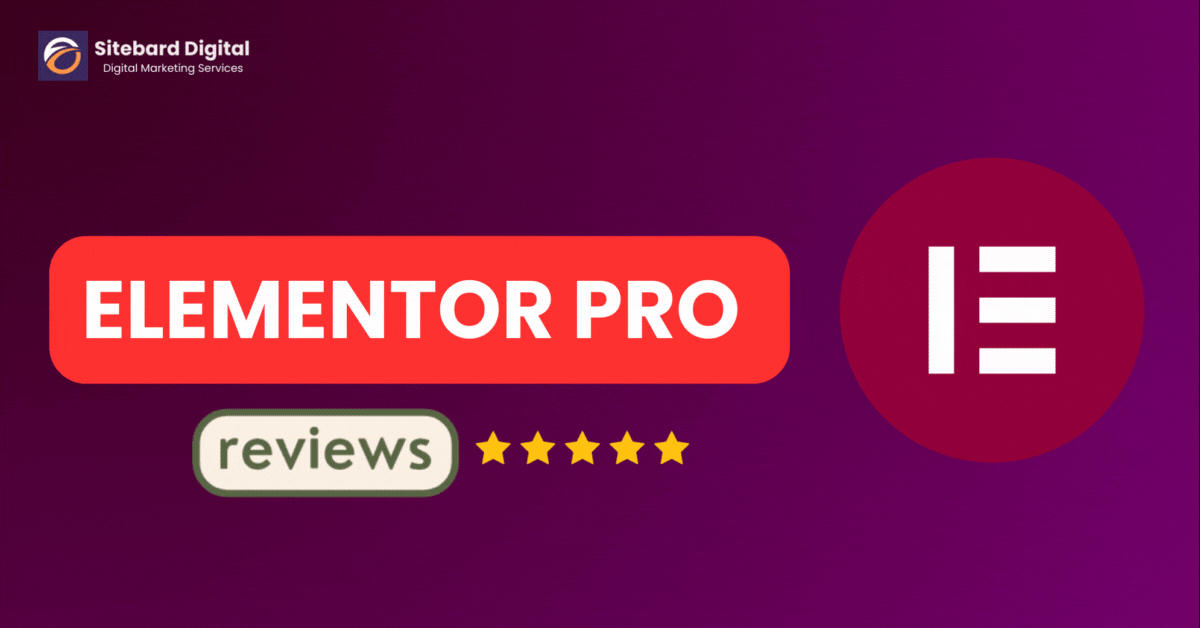Table of Contents
ToggleIntroduction
In the world of WordPress, having a powerful page builder is essential for creating stunning websites without any coding knowledge. Elementor is a widely recognized WordPress page builder that empowers website owners and developers to design and customize their websites with ease. In this Elementor review for 2024, we will delve into its features, pros, and cons, and explore some alternatives.
What is Elementor?
Elementor is a famous visual drag-and-drop page builder for WordPress. It provides a user-friendly interface that allows users to build and customize their websites using pre-designed elements and blocks. Elementor offers comprehensive features and functionalities, making it one of the most preferred page builders in the WordPress community.
Features of Elementor
Drag-and-Drop Editor:
Elementor’s intuitive drag-and-drop editor lets you create and customize your website layout easily. You can add elements, rearrange them, and see the changes in real time.
Pre-designed Templates and Blocks:
Elementor provides a vast library of professionally designed templates and blocks that you can import and customize according to your website’s needs. This saves time and effort in creating a visually appealing website.
Responsive Design: Elementor ensures that your website looks great on all devices by offering responsive design options. You can customize the layout and style for different screen sizes.
Extensive Widget Collection:
With Elementor, you have access to a wide range of widgets to add various elements to your website, including buttons, images, forms, sliders, testimonials, and more.
Theme Builder:
Elementor’s Theme Builder feature allows you to design and customize your website’s headers, footers, single post layouts, and archive pages, giving you complete control over your website’s appearance.
WooCommerce Integration:
Elementor seamlessly integrates with WooCommerce, enabling you to design and customize your online store’s pages, product layouts, and checkout process.
Third-Party Integration:
Elementor supports integration with popular WordPress plugins, such as Yoast SEO, Contact Form 7, and Mailchimp, expanding its functionality and compatibility.
Global Style Settings:
Elementor lets you define global style settings, allowing you to maintain consistency across your website. You can set font styles, colors, and other design elements in one place.
![Elementor Review [November 2024] Best WordPress Page Builder 1 Elementor pro Review](https://www.sitebard.com/wp-content/uploads/2023/07/Elementor-pro-Review--1024x536.gif)
Pros of Using Elementor
User-Friendly Interface: Elementor’s drag-and-drop interface makes it easy for users of all skill levels to build and customize their websites.
Versatility and Customizability: Elementor offers extensive customization options, allowing you to create unique designs that match your brand identity.
Fast and Lightweight: Elementor is optimized for performance and doesn’t slow down your website. It generates clean code and loads quickly, contributing to a better user experience.
Active Community and Support: Elementor has a large and active community, providing resources, tutorials, and support forums to help users make the most of the page builder.
Regular Updates and Improvements: The Elementor team regularly releases updates and new features, ensuring that the page builder stays up-to-date with the latest web design trends and technologies.
Cons of Using Elementor
Learning Curve for Advanced Features: While Elementor is easy to use for basic website building, mastering the advanced features and capabilities may require some learning and experimentation.
Limited Styling Options: Some users find that Elementor’s styling options are not as extensive as those offered by some other page builders. However, it still provides enough flexibility for most website design needs.
Alternatives to Elementor
Divi Builder: Divi Builder is a popular alternative to Elementor, offering a similar drag-and-drop interface and a wide range of design options. It also includes a visual theme builder.
Beaver Builder: Beaver Builder is known for its simplicity and ease of use. It offers a clean drag-and-drop interface and a variety of templates and modules to create beautiful websites.
Oxygen: Oxygen is a powerful page builder that gives you complete control over every aspect of your website’s design. It offers advanced features and a code-free interface.
Brizy: Brizy is a user-friendly page builder that focuses on simplicity and speed. It offers an intuitive interface and a comprehensive collection of pre-designed elements.
Conclusion
Elementor is a feature-rich WordPress page builder that empowers website owners to create visually stunning websites without coding knowledge. Its user-friendly interface, extensive customization options, and regular updates make it a top choice for many WordPress users. However, it’s important to consider your specific requirements and explore alternatives to ensure you choose the right page builder for your website.
FAQs
Is Elementor free to use?
Elementor offers both a free version and a premium version. The free version provides basic functionality, while the premium version unlocks additional features and templates.
Can I use Elementor with any WordPress theme?
Yes, Elementor is compatible with most WordPress themes. However, it’s always a good idea to check the theme’s compatibility or choose a theme that explicitly supports Elementor.
Does Elementor affect website loading speed?
Elementor is optimized for performance and generates clean code. When used correctly, it doesn’t significantly impact website loading speed. However, it’s important to optimize images and use caching plugins to further improve speed.
Is Elementor suitable for beginners?
Yes, Elementor is beginner-friendly and offers a user-friendly interface with drag-and-drop functionality. It doesn’t require coding knowledge, making it accessible to users of all skill levels.
Can I use Elementor with WooCommerce?
Yes, Elementor integrates seamlessly with WooCommerce, allowing you to design and customize your online store’s pages and product layouts.




